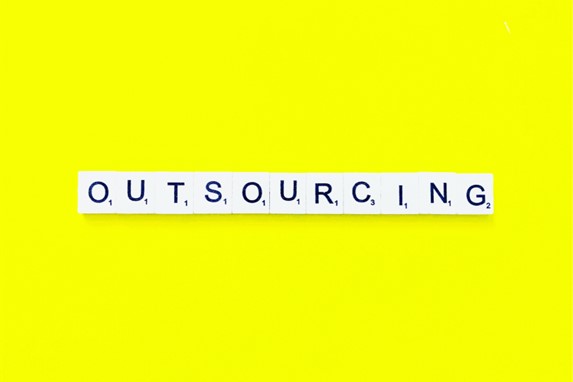Recruitment is a crucial aspect of any organisation’s human resource function. The procedure of hiring the right talent for a vacant position can significantly impact the company’s growth and culture. With the evolving corporate landscape, many firms are now considering HR Recruitment Process Outsourcing. But what exactly does it entail? And more importantly, what are its advantages and pitfalls?
What is HR Recruitment Process Outsourcing?
HR Recruitment Process Outsourcing, commonly abbreviated as RPO, refers to an external organisation’s responsibility to manage the hiring requirements of another company. Specifically, when addressing the recruitment for Human Resource department roles, it means engaging an external partner to manage the selection, vetting, and hiring processes for HR roles.
The Benefits of HR Recruitment Process Outsourcing
Outsourcing recruitment, especially for specialised roles like HR positions, comes with several advantages:
Expertise in HR Hiring
Professional RPO providers possess a deep understanding of the HR sector. They are well-acquainted with the nuances of hiring HR professionals. Why navigate the intricate maze of HR hiring when an expert can guide you?
Cost Efficiency
Contrary to popular belief, outsourcing can save costs. Instead of investing in a full-fledged in-house recruitment team, RPO can be a cost-effective alternative. But, can we truly put a price on hiring the right talent?
Time-saving
For companies with frequent hiring needs, the recruitment process can be time-consuming. An RPO provider streamlines this process, allowing companies to focus on core business operations. Time is money, isn’t it?
Access to a Larger Talent Pool
RPO providers have an extensive database of candidates and connections in the HR industry. Wouldn’t it be beneficial to tap into this vast network?
Potential Drawbacks of HR Recruitment Process Outsourcing
While the benefits are enticing, there are potential pitfalls to consider:
Loss of Control
Entrusting recruitment to an external party may lead to reduced control over the hiring process. Are companies truly ready to cede this power?
Quality Concerns
There’s a risk that the RPO provider’s hiring standards may not align with the company’s values or expectations. What happens when quality falls short of expectations?
Hidden Costs
While RPO can be cost-effective, hidden fees and unanticipated costs may emerge. Is the financial transparency adequate?
Data Privacy Issues
Sharing sensitive company information and data with an external partner can pose risks. How can companies ensure their confidential data remains protected?
Is HR Recruitment Process Outsourcing Right for Your Company?
When considering HR Recruitment Process Outsourcing, it’s crucial to weigh the pros and cons. Think about the specific needs of your organisation. Can an RPO provider align with your company’s culture and values?
The decision ultimately boils down to a company’s unique requirements and priorities. Do the advantages outweigh the risks? Or does the traditional recruitment model seem more suitable? The answer, as with many complex business choices, lies in detailed analysis and introspection.
Conclusion
HR Recruitment Process Outsourcing presents an exciting alternative to traditional hiring methods, especially for HR roles. While it offers expertise, cost savings, and access to a broader talent pool, it’s essential to be aware of potential pitfalls like quality concerns and loss of control. As businesses evolve and adapt to changing landscapes, might RPO be the future of recruitment? Only time will tell.
Summary
HR Recruitment Process Outsourcing (RPO) provides a strategic alternative to traditional hiring, especially for HR roles. It offers numerous advantages like expertise and cost-efficiency, but potential drawbacks such as loss of control and quality concerns should be considered. Deciding if RPO is the right fit depends on a company’s unique needs and priorities.
Frequently Asked Questions
What does HR Recruitment Process Outsourcing (RPO) mean?
HR Recruitment Process Outsourcing, or RPO, refers to the practice of entrusting an external organisation with the responsibility of managing the hiring requirements for another company. Specifically, in the context of HR roles, it involves engaging an external partner to oversee the selection, vetting, and hiring processes tailored to HR positions.
How can HR Recruitment Process Outsourcing save costs for a company?
RPO can be a cost-effective alternative to maintaining a full-fledged in-house recruitment team. With an RPO provider, companies can tap into expertise and resources without the overhead costs associated with permanent recruitment staff, recruitment software, and other related expenses. It also potentially reduces costs related to prolonged vacant positions and less effective recruitment strategies.
What are the main benefits of opting for HR Recruitment Process Outsourcing?
The primary advantages of HR Recruitment Process Outsourcing include access to expertise in HR hiring, cost efficiency, time-saving during the recruitment process, and the ability to tap into a more extensive talent pool and networks in the HR industry provided by the RPO agencies.
Are there any potential risks or downsides to using RPO services for HR roles?
Yes, potential drawbacks to consider when opting for RPO include a potential loss of control over the recruitment process, concerns regarding the quality of hires if the RPO provider’s standards don’t align with the company’s, unexpected hidden costs, and potential data privacy issues when sharing sensitive company information with an external partner.
How can companies ensure data privacy when working with an RPO provider?
To ensure data privacy, companies should establish clear data handling and confidentiality agreements with the RPO provider. Regular audits and reviews can be conducted to ensure compliance. It’s also beneficial to opt for RPO providers with established reputations, certifications, and adherence to data protection regulations.
Benefits of Partnering with a Specialist HR Recruitment Agency
Access to a Vast Network of Professionals
A specialist HR recruitment agency has an extensive network of professionals in the human resources field. This network allows them to identify top talent with the right expertise, qualifications, and experience for high-level positions within your organisation.
Industry-Specific Knowledge and Expertise
HR recruitment agencies specialising in your industry have a deep understanding of the specific requirements and challenges of top-level HR roles. This expertise enables them to identify candidates with the ideal skill set and experience to excel in these positions.
Streamlined Recruitment Process
Working with a specialist HR recruitment agency can save your organisation time and resources by streamlining the entire recruitment process. The agency takes care of tasks such as job posting, candidate sourcing, screening, and initial interviews, allowing your HR team to focus on other essential duties.
Tailored Recruitment Strategies
A specialist HR recruitment agency develops customised recruitment strategies that align with your organisation’s needs and goals. They take into account factors such as your company culture, values, and objectives to ensure that the candidates they present are an ideal fit for your organisation.
Confidentiality and Discretion
Top-level HR roles often require a high degree of confidentiality and discretion during the recruitment process. A specialist HR recruitment agency is experienced in handling such sensitive information and can ensure that the process is conducted with the utmost professionalism and confidentiality.
Reduced Time-to-Hire
Partnering with a specialist HR recruitment consultant or agency can significantly reduce the time it takes to fill top-level HR positions. By leveraging their network, industry expertise, and recruitment strategies, they can quickly identify, screen, and present the best candidates for your organisation.
Enhanced Quality of Hire
A specialist HR recruiter’s primary goal is to identify the highest quality candidates for your organisation. Their expertise and tailored approach ensure that the candidates they present meet the specific requirements of top-level HR roles, leading to a better overall quality of hire.
Long-Term Partnership and Support
Establishing a long-term partnership with a specialist HR recruitment agency can be beneficial for your organisation’s ongoing talent acquisition needs. The agency can provide valuable insights, support, and assistance for future recruitment efforts, ensuring a consistent and effective approach to attracting and retaining top HR talent.
Why Choose PEEQ?
The average fill rate amongst HR Recruitment Agencies is 46%, but at PEEQ our average fill rate sits above 90%, So you are twice as likely to make a hire if you choose PEEQ.
This is due to two reasons:
Firstly, we only partner with our clients on an exclusive basis, so we ‘own the responsibility’
Secondly, we don’t employ recruiters. Instead, we work with trusted and proven freelance HR recruiters, to hire for our clients.
We give them the tools and infrastructure to be successful, and the rest is down to their magic and experience. Our Associates are not employed by us and only get paid for making a successful hire.
This makes them incredibly tenacious and committed to finding the best talent, which is why our fill rate sits above 90%, compared to the industry average of 46%.
More reasons to work with PEEQ
Psychometric insight reports
Obtain a unique insight into your candidates’ Cultural Fit, Strengths, Decision Making and Resilience through our accredited assessments.
Post-hire executive coaching
Set your hire up for success with a tailored coaching programme that helps them achieve their full potential personally and professionally.
Up to 6 Month Placement Guarantees
Confidently make your hire under our 2, 3 or 6 Month Placement Guarantee; safe in the knowledge that we’ll offer you a free replacement if they leave within our pre-agreed time period.
BeTalent Accredited Approach
We are proud to offer the BeTalent Accredited approach that enables us to deliver scientific candidate assessment, in accordance with the British Psychological Society standards.
This solution is for you if you want:
- An objective way to determine who is the best fit for your role
- A comprehensive understanding into your new hire before they start
- Peace of mind that you’ve made the right hiring decision.
Get in Touch with PEEQ HR Recruitment Agency
We are here to help you. If you have any questions, queries or would like to discuss a potential hire, a job application, or require clarification on anything detailed on our website, then we would love to hear from you.
Please feel free to call, email or complete the form provided and we will assist you.





